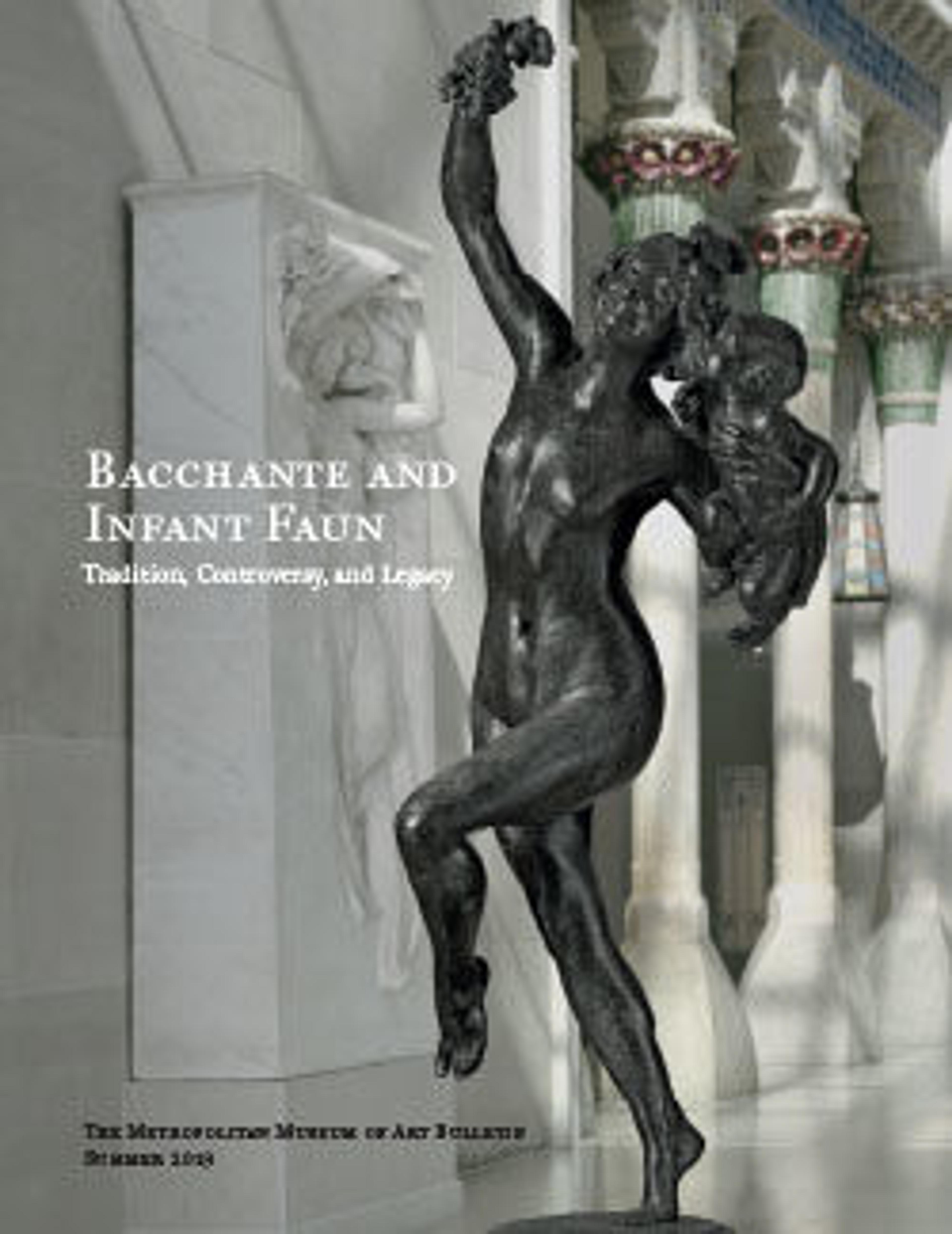Boy and Duck
MacMonnies’s best groups have an exuberance resulting from his affinity for contemporary sculpture in France, where he spent much of his career. Modeled in Paris, “Boy and Duck” depicts a laughing boy delighted at having captured a prize duck. When the work is installed as a fountain, the duck and ducklings spout water from their open beaks, and the implied noise and confusion of the moment are vividly evoked. The theme of a nude boy struggling with a feisty animal dates back to ancient works of art, some of which MacMonnies had admired on a trip to Italy in 1894. The tradition was revived in Italian Renaissance art and carried further in nineteenth-century French and American sculpture.
Artwork Details
- Title: Boy and Duck
- Artist: Frederick William MacMonnies (American, New York 1863–1937 New York)
- Date: 1895–96, cast 1901
- Culture: American
- Medium: Bronze
- Dimensions: 29 3/4 x 23 1/2 x 13 3/4 in. (75.6 x 59.7 x 34.9 cm)
- Credit Line: Rogers Fund, 1922
- Object Number: 22.61
- Curatorial Department: The American Wing
More Artwork
Research Resources
The Met provides unparalleled resources for research and welcomes an international community of students and scholars. The Met's Open Access API is where creators and researchers can connect to the The Met collection. Open Access data and public domain images are available for unrestricted commercial and noncommercial use without permission or fee.
To request images under copyright and other restrictions, please use this Image Request form.
Feedback
We continue to research and examine historical and cultural context for objects in The Met collection. If you have comments or questions about this object record, please contact us using the form below. The Museum looks forward to receiving your comments.
